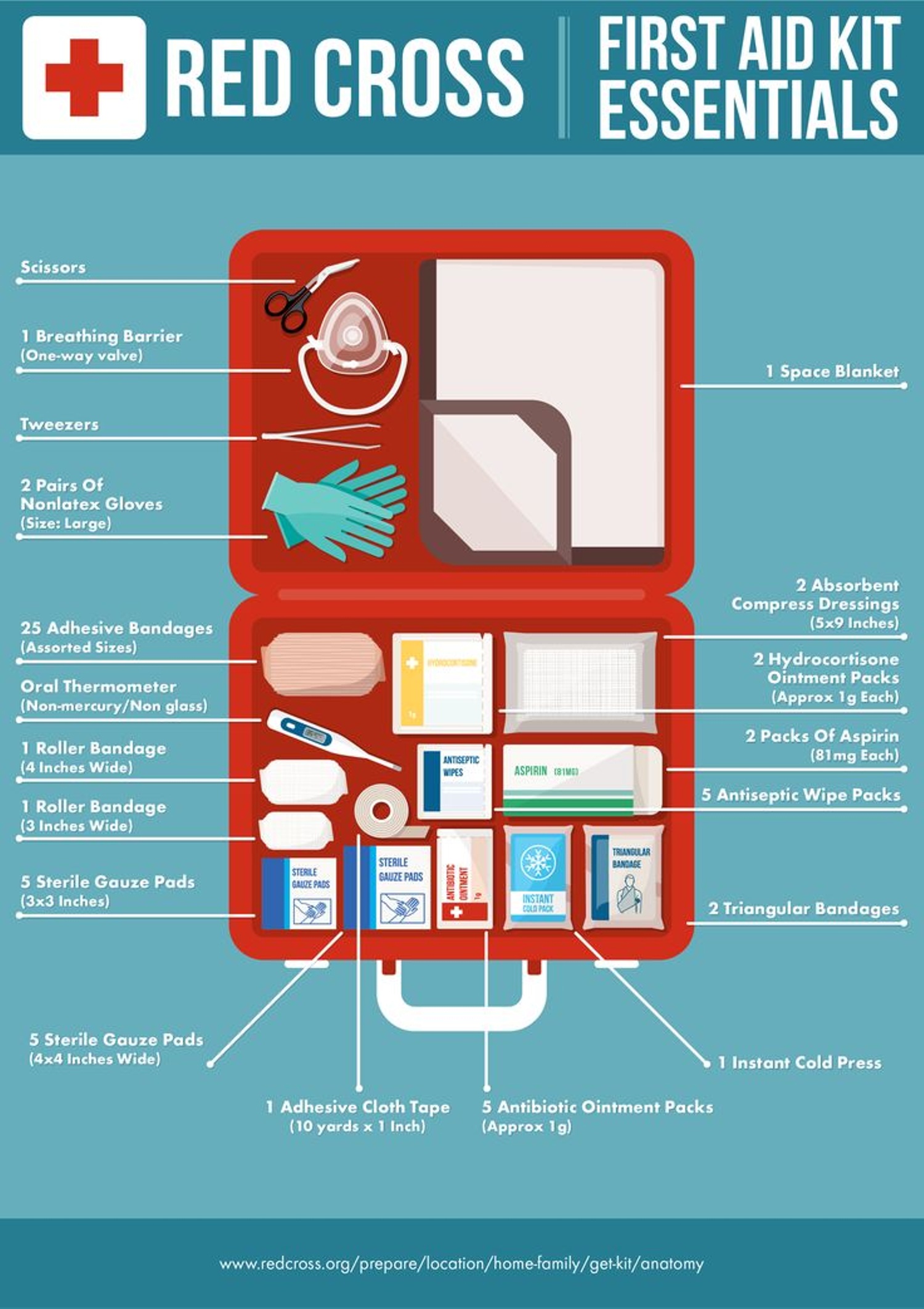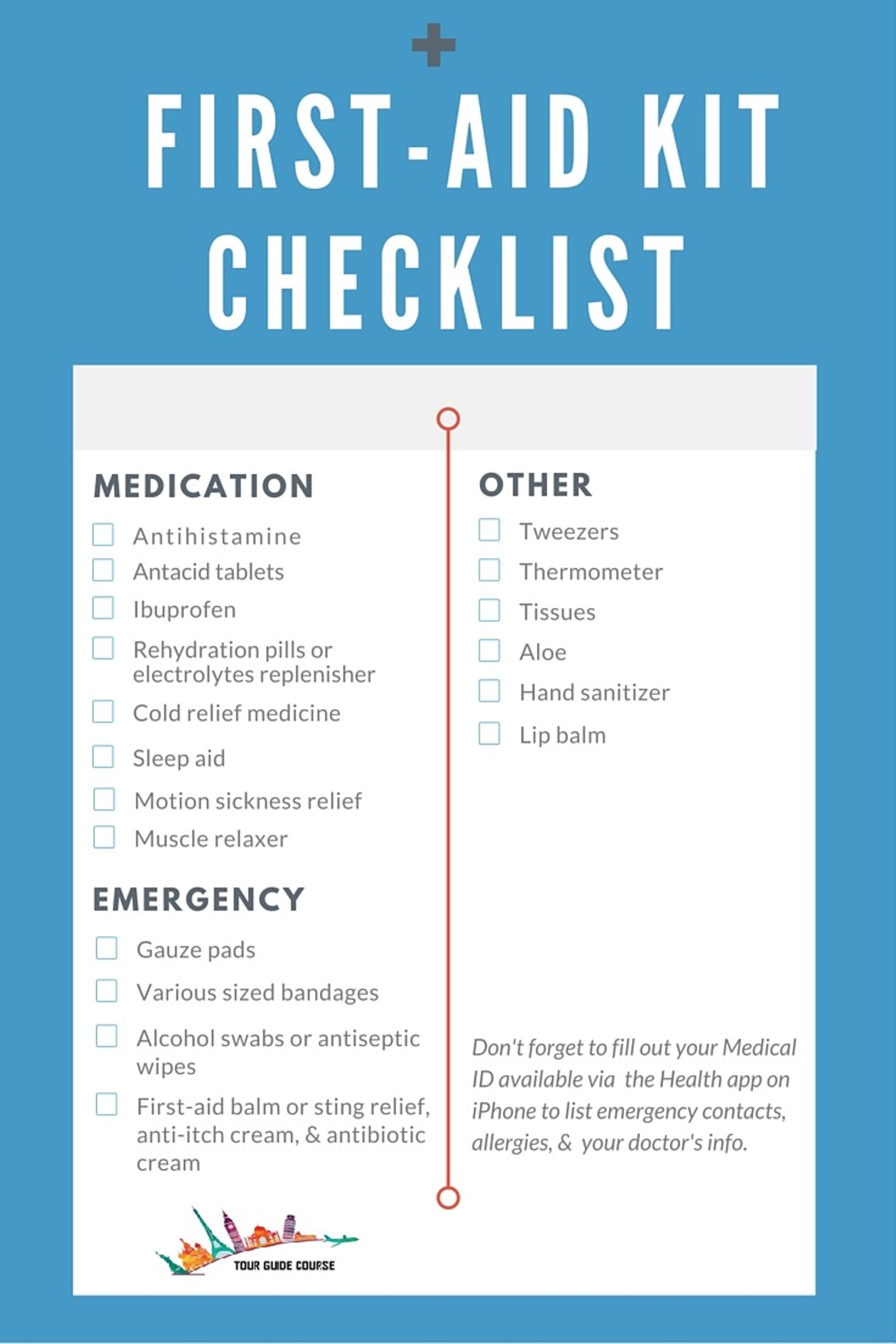First Aid Kit
0 minutes
Add the class to your calendar
Completed
Practical advice about your First Aid Kit:
- First Aid items should be replaced as soon as possible. If not available locally ask your company's head office to send them, Make sure you get receipts for your purchases for reimbursement.
- There should be a list of all items in the First Aid kit with sizes, number of each item, and cost. (refer to picture).
- You must fill in any accident report form and/or keep a record of all accidents when passengers needed treatment. This is used by police if needed and your company for insurance purposes.
- Different tour operating companies have different policies about the use of syringes, needles, and sutures, and the administering of ibuprofen or aspirin.
- Make sure you know what your company policies are.
- You must ask all clients about allergies and note it down in your files. You may need to provide this information to relevant suppliers (restaurants etc) and ensure you have instruments you need to assist. IE- Insulin, Diabetic Jelly Beans, an Epi-pen for Adrenalin in case of Anaphylactic shock.
- Your employer will be to check that the items are in your kit and to replace items that can't be re-used.
Items should include: (please refer to pictures, we have also included a printable checklist)
- Thick dressings (small, medium and large) with bandage attached - used to absorb blood and stop bleeding
- Non-adhesive dressing - apply shiny side to the wound
- Loose-woven bandages to hold dressings in place
- Crepe bandages to support injured joints
- Triangular bandages to use as slings or for compression
- Tubular bandages to hold dressings in place, for support and to help prevent swelling
- Surgical tape
- Plasters for open cuts
- Adhesive plaster roll- trim to fit the wound
- Antiseptic wipes to clean cuts and grazes
- Arnica ointment for bruising
- Surgical gloves
- Thermometer
- Splinter tweezers
- Antiseptic cream to apply to wounds
- Antiseptic solution - use with gauze for cleaning wounds
- Gauze swabs to soak up blood
- Rehydration salts for dehydration and diarrhea
- Eyebath to wash out foreign bodies
- Eye pads with a bandage to protect eyes from infection
- Forceps
- Safety pins

